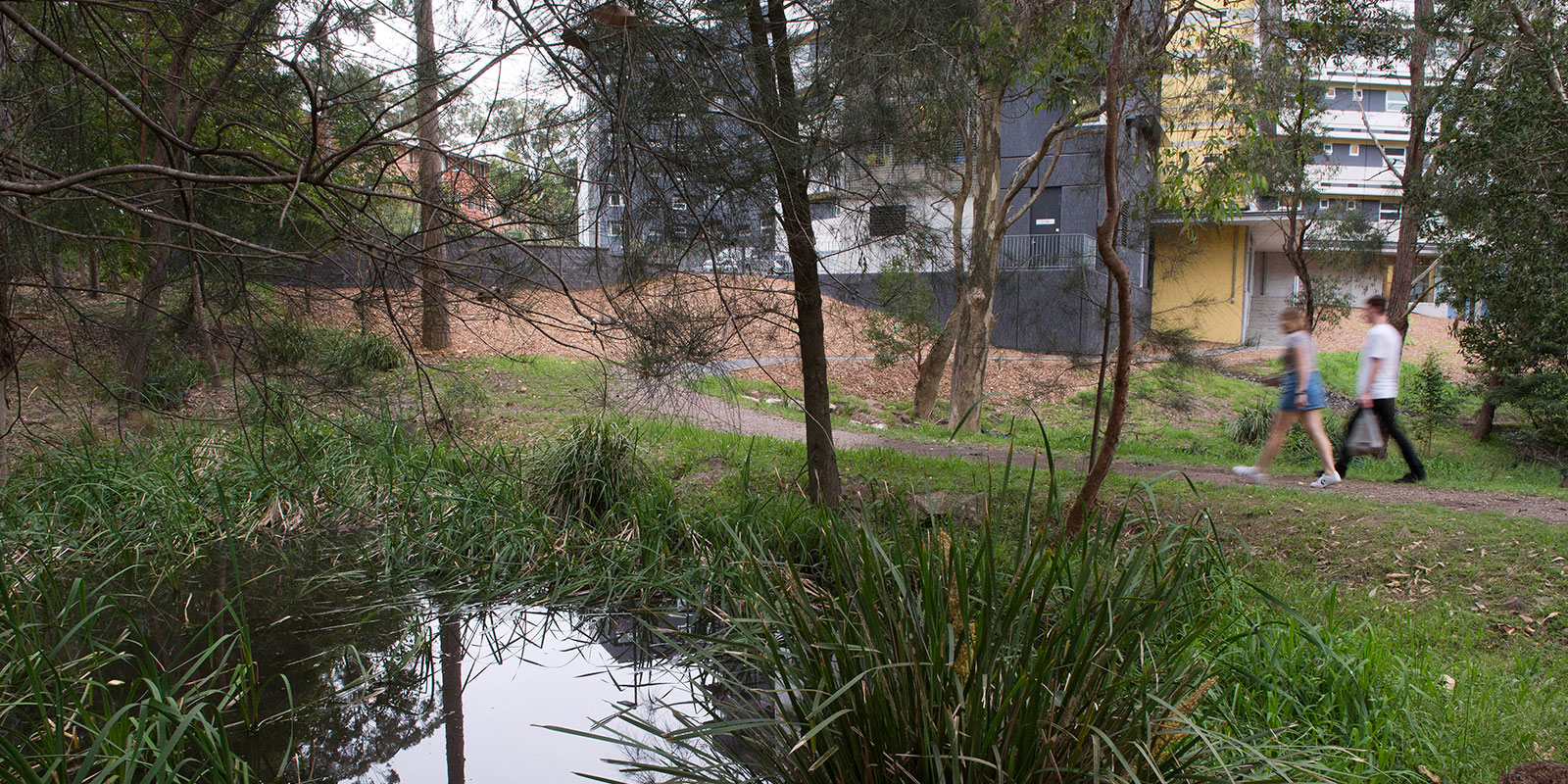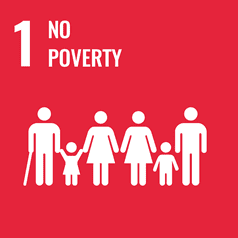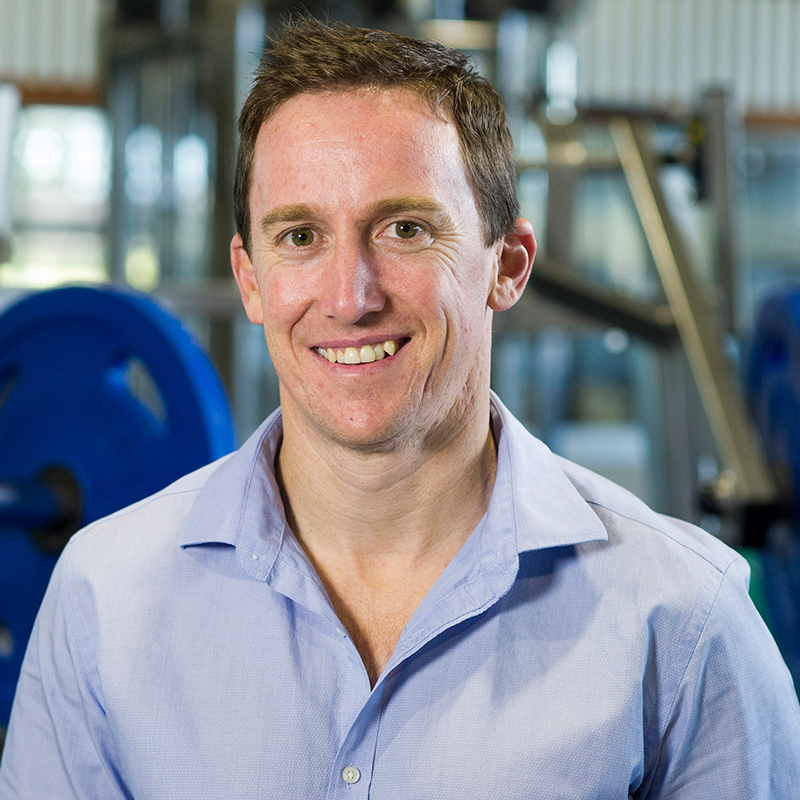

Goal 1:
No Poverty
Programmes for Services Access
The University of Newcastle provides programmes and training to improve access to basic services to all members of the community. We are deeply committed to improving access to essential services for all members of the community through a range of inclusive and impactful programs. These programs span legal, nutritional, lifestyle, and financial literacy.
2024 Highlights
- Older Persons Legal Clinic provides free legal advice to people aged 60+ and Indigenous people aged 50+, covering topics such as wills, elder abuse, tenancy, and disputes with government departments. Operated by the University’s Legal Centre, it is staffed by law students under the supervision of qualified solicitors and runs weekly drop-in sessions at NUSpace.
- Law on the Beach, held annually at Merewether Beach, offers free legal advice in a relaxed setting. Staffed by law students and Legal Centre lawyers, the clinics are open to all and have been particularly valuable for older community members navigating legal challenges post-pandemic.
- Healthy Dads Healthy Kids is a world-first lifestyle program that empowers fathers to model healthy behaviours for their children. With over 2,000 participants, it has improved physical activity, nutrition, and emotional wellbeing across families, and is now being adapted internationally.
- No Money No Time, developed by University researchers, provides free, evidence-based nutrition tools and resources—including quizzes, meal plans, and challenges—to help Australians eat well regardless of budget or time constraints. The platform supports young people, families, and those managing chronic conditions like diabetes and mental health challenges.
- In partnership with Greater Bank, the University delivers the Finance Academy, a financial literacy outreach program for high school students across NSW. The program combines theoretical content from the University with practical insights from Greater Bank, helping young people understand saving, debt, budgeting, and scams. The partnership also established the Greater Bank Finance Lab, a hands-on learning space for students and community members.
Together, these programs reflect our holistic approach to community wellbeing, ensuring equitable access to basic services and fostering long-term social sustainability.
Older Persons Legal Clinic
The University of Newcastle Legal Centre’s Older Persons Legal Clinic offers free legal advice and assistance to people aged 60 years and over and to Indigenous people aged 50 years and over.
It is a community legal service staffed by lawyers and law students. The Older Persons Legal Clinic can offer information, referrals, advice and representation on such things as:
- Wills and planning for the future
- Family law
- Neigbourhood disputes
- Tenancy issues
- Disputes with government departments
- Elder abuse and care issues
Law students completing the University of Newcastle Practice Program staff the Older Persons Legal Clinic under the supervision and guidance of a trained lawyer.
When you attend the Older Persons Legal Clinic you will initially meet with a law student, then with our in-house solicitor who may be able to provide you with legal advice in your matter. If we cannot assist you, we will refer you to someone who may be able to help.

Seeking advice about planning ahead?
Come along to our Law on the Beach clinics
2024 Older Persons Legal Clinic
Download the 2024 Older Persons Legal Clinic Annual Report
Download

A world-first healthy lifestyle program targeting fathers has been transforming the health of men and their families in the Hunter region for nearly a decade. Now it’s going global.
The Healthy Dads, Healthy Kids program is an award winning, world-first program that engages fathers in positive lifestyle role modelling and parenting strategies.
Despite a growing body of research highlighting the unique role that fathers can play in shaping their children’s dietary and physical activity behaviours, most healthy lifestyle programs for families target the mother and the mother-child relationship.
A team of researchers from the University of Newcastle’s Centre for Active Living and Learning changed that when they developed the only evidence-based healthy lifestyle program that draws on the father-child relationship.
The problem
Earlier research has found that obese children with an obese father were nearly three times more likely to remain obese as an adult compared to those children whose father was not obese.
Obesity in fathers has been associated with a four-fold increase in the risk of obesity for both sons and daughters at 18 years of age, which further increases children’s risk of various lifestyle diseases in adulthood.
Previous research also demonstrated that it was the parenting styles and behaviours of fathers (not mothers) that predicted the overweight status of preschool children. Fathers’ parenting styles also predicted better maintenance of weight loss in obese children.
Healthy Dads, Healthy Kids was developed to help fathers achieve and maintain a healthy weight while also improving the overall health of their children.
The research
Researchers conducted two randomised controlled trials of the program through a partnership between the University of Newcastle, Coal & Allied and the Hunter Medical Research Institute.
They recruited 146 overweight and obese fathers and their primary school-aged children, who were then divided into two groups. The first was part of the Healthy Dads, Healthy Kids program and the second was the control group.
All participants had their height, weight, blood pressure and heart rate taken. They also completed surveys about daily eating habits and wore monitors to measure their physical activity.
Over eight sessions, fathers in the Healthy Dads, Healthy Kids program learned about weight loss, healthy eating, how to increase activity levels in their children, and how to sustain a healthy lifestyle. Participants also received manuals and logbooks to keep track of their progress.
Importantly, dads and their kids took part in play and ‘rough and tumble’ activities designed to leverage the father-child interaction.
When physical measurements and surveys were repeated at the end of the program, fathers in the Healthy Dads, Healthy Kids trial groups achieved a significant and clinically meaningful weight loss compared to the control group, which registered little change.
Fathers in the trial group also increased physical activity levels, cut daily calorie intakes, and reduced their resting heart rates compared to the control group.
Significantly, a later trial demonstrated these health improvements could be maintained 12 months after participating in the Healthy Dads, Healthy Kids program.
Engaging local stakeholders
Local schools played a critical role in the implementation of the Healthy Dads, Healthy Kids program by providing the facilities and equipment needed to deliver the program.
School staff served as local ‘champions’, promoted the program to local families, and recruited participants.
The program secured support from local businesses, health practitioners, councils, hospitals and community groups, all of whom provided input into program development and supported recruitment efforts.
University of Newcastle researchers also trained community members to serve as program managers and facilitators in their areas.
By 2016, Healthy Dads Healthy Kids transitioned from a university-led program to a community-managed initiative with global adaptations implemented in England, Scotland and the USA.
Research impact
The Healthy Dads, Healthy Kids program has reached 400 families across the NSW Hunter region. This includes more than 500 children in 25 schools.
In 2016, University of Newcastle researchers collaborated on a $900,000 grant from the UK National Institute of Health Research to adapt Healthy Dads, Healthy Kids for ethnically diverse populations in partnership with Birmingham University and the UK Fatherhood Institute.
The Baylor College of Medicine in the United States secured $824,000 in funding to adapt and test the Healthy Dads, Healthy Kids program for Latino families in Texas in 2017.
The Scottish prison service has completed training to adapt and implement the program for incarcerated fathers in partnership with the University of Stirling.
Research awards
- World Health Organisation’s ‘Excellence in Obesity Prevention’ award in 2014
- ‘Best Community Engagement’ award from Australia’s Business and Higher Education Round Table in 2014
- Public Health and Policy award at the International Congress of Obesity in Stockholm in 2010
- Sports Medicine Australia recognised Healthy Dads, Healthy Kids with the prestigious ASICS Medal, naming the program the best research project at its 2009 national conference.

I can’t think of a better, stronger model of the school-community partnership at work.” – Ms Jenny Rozynski, Principal of Cessnock Public School
Professor Philip Morgan
Healthy Dads, Healthy Kids

More access to life-saving nutrition advice
Each year 27,500 Australians die from preventable diet-related diseases. Unhealthy eating habits among younger Australians are leading to the premature development of chronic diseases such as type 2 diabetes and heart disease. Thanks to generous funding from the nib foundation, University of Newcastle researchers are helping Australians be more informed about their nutrition-related health.
While we know that what you eat impacts your health and wellbeing, knowing what to eat, how to cook and how to save on groceries is no easy task.
No Money No Time aims to address this problem by providing a highly engaging interactive food and nutrition website that translates nutrition science research into practical, real-world advice. This initiative was made possible through collaboration with a team of researchers at the University of Newcastle with the generous support of the nib foundation and our community.
With close to a million people accessing the site since its launch, No Money No Time has grown to include hundreds of quick, affordable and nutritious recipes, ebooks, meal plans, meal builders, podcasts and more – reaching hundreds of thousands of people each year online and through impactful partnerships.
"Thanks to the nib foundation for their vision and commitment to delivering innovative, preventative health programs. Together we have created positive and lasting change for so many Australians and we look forward to the program’s continued growth through new partnerships in the future.”
Laureate Professor Clare Collins AO
Laureate Professor NHMRC Investigator Fellow
School of Health Sciences (Nutrition and Dietetics)
Doctor of Philosophy, 1999
Transforming lives in Western Sydney and the Hunter New England Region
Diabetes impacts thousands of lives, placing an unsustainable burden on the state’s healthcare system. To address this, No Money No Time has collaborated with partners to create innovative resources and programs to empower individuals to eat well, and prevent and manage diabetes.
In a current partnership with the Diabetes Alliance Program Plus, No Money No Time is utilising new technologies to create personalised nutrition programs, enhancing health outcomes for people with diabetes. No Money No Time also teamed up with Western Sydney Diabetes to produce an ebook for their 2kg Challenge packed with practical advice, healthy recipes and tips for making informed dietary choices. For those at risk of diabetes, losing just 2kg can reduce their chance of developing type 2 diabetes by 30%.
Thanks to generous support, these partnerships and innovative ideas are making a lasting impact. We are excited about the future of the program and look forward to seeing the continued difference it can make in our communities.
» Check out No Money No Time's free recipes and resources.
Student ambassador for the Greater Bank Finance Academy 1:47
Zac, a University of Newcastle student ambassador for the Greater Bank Finance Academy, talks about the academy and the financial literacy programs.
Financial Literacy Program 2:15
Improving student Financial Literacy 1:26
FactSet: The real-time data
FactSet is a financial database which we subscribe to at NBS. FactSet provides access to financial data and analytics that investors, fund managers as well as researchers use across the world. The Greater Bank Finance Lab workstations are connected to FactSet. Further, students enrolled in Finance and Economics courses also get access to the web version of FactSet. This database is extensively used in workshops conducted in the Greater Bank Finance Lab. Assessment items in undergraduate and postgraduate finance courses (for example, Corporate Finance, Investment Analysis, Portfolio Management) are also developed based on the use of this database. This approach provides students the opportunity to use real-time financial data to test/apply their classroom learning.
Rotman Interactive Trader: Integrating theory with practice
Newcastle Business School subscribes to Rotman Interactive Trader (RIT). This is currently provisioned in the Greater Bank Finance Lab. This is a market-simulator that provides students with a hands-on approach to learning finance with real world cases to apply finance theory in a stochastic setting. This platform provides similar stock trading order management systems as those used by major financial institutions. Students control their order types, negotiate and book a trade with counterparty students, thus navigate real-life issues faced by investors and fund managers.
The Business Analytics Co-Design Lab
The Greater Bank Finance Lab also serves as the Business Analytics Co-Design Lab. The Lab is aimed to bring business managers, data scientists, academics and students together for reproducing a digital experience in business higher education. This will enhance our pedagogies for preparing business graduates to succeed and make them “Tech-Ready” for their digital futures. We are keen to educate the next generation talent and foster analytics skills for accelerating Australian rural and urban communities and transforming businesses and other social organizations. The objectives are to disseminate practical knowledge of various emerging digital technologies that may have various applications in business data collecting, treating, analyzing, and visualizing for the benefit of business decision making. For achieving these, the lab enables a practical learning environment that engages students with the latest business analytics tools and techniques, building industry collaborations and stakeholder engagements into the process of various solutions co-designing. Students’ analytics skills and talent development are the central aim of this initiative.
By engaging in the foregoing activities, students will gain experience and exposure to essential analytics platforms, tools and techniques including Hadoop, Tableau, R, Python, Power BI, Spark and TensorFlow. For instance, for processing natural language or textual data, various natural language processing (NLP) algorithms will be available, including topic modelling, sentiment analysis, text classification, summarization, annotation, translation and question answering. As a result, students will be proficient in the manipulation and analyses of large unstructured text datasets for knowledge discovery, will understand how to design NLP solutions, and will be aware of their commercial application. From social media mining, brand awareness, marketing research and automation, students will be well prepared to meeting industry demand for various NLP and other relevant analytics applications. These include financial evaluations, trend detection and monitoring of business functions as well as for unfolding insights of selection of marketing content that better resonates with consumers.
As NLP capabilities continue to mature, unstructured text progressively expands, and business analytics resources are increasingly accessible, industry demand for professionals experienced in understanding various analytics and NLP solutions continue to grow. The lab is therefore aligned to meeting industry demand, by producing professionals with proficient analytics skills in this business-essential technical area, leading to produce competitive business graduates with world-class knowledge of data-driven problem solving in this digital era. The entire understanding is to promote the latest industry-oriented teaching and learning in business disciplines for enhancing employability.
Greater Bank Finance Academy
Since 2019, the University of Newcastle and Greater Bank have worked together to build financial literacy for high school students through the Greater Bank Finance Academy.
To date over 2,000 high school students from across New South Wales have undertaken the Finance Academy. Almost 30% of high school students who have participated in the Finance Academy are located in the 10% most disadvantaged socio-economic areas of Australia.
The Greater Bank Finance Academy is a free, online and face to face financial literacy education program for high school students. Ambassadors from Greater Bank, and students from the Newcastle Business School host workshops on varied topics from savings and budgeting through to investing and cybercrime. This program combines theoretical knowledge with practical examples of what young people need to think about as they plan for their future.
Greater Bank Finance Sessions
Financial Literacy education programs and workshops designed for the broader community. These short courses, open to the community, share practical information on financial topics such as reducing debt, managing finances and how to avoid being scammed.
Programs include Financial Literacy for Seniors and Financial Literacy for Women at Risk.
Junior Finance Academy
The Junior Finance Academy is a free financial literacy education program where students from year 3 to year 6 can learn about the concept of money in a fun way with age appropriate activities. The program is 100% online and on demand. This means it’s perfect for parents to lead their children through the program at a time that suits them best. Follow these links to learn more:
Junior Finance Academy stage 2
Junior Finance Academy stage 3
High School Finance Academy
The High School Finance Academy is an on demand program for stage 5 students, designed for use in the classroom or the home, at a time suitable to the instructor and can be paced according to the ability of the student. With lessons targeted to Year 9 and Year 10 students (also appropriate for year 11), the course content is created in partnership with the University of Newcastle (theory) and Greater Bank (practical) and is delivered by University of Newcastle student ambassadors and Greater Bank staff.
High School Finance Academy stage 5
Other engagement activities
The Greater Bank Finance Lab is also used to facilitate various engagement activities. For example, workshops are conducted for students majoring in Finance and Economics. These workshops typically focus on how to use the Finance Lab, financial databases, and research tools for learning purposes. The Greater Bank Finance Lab also hosts community clinics for retirees and high school students. These clinics concentrate on basic taxation, investment, and financial planning issues. The lab will also introduce a webinar series on contemporary finance and economics issues.
Find out more
About our partnership
The University of Newcastle acknowledges the traditional custodians of the lands within our footprint areas: Awabakal, Darkinjung, Biripai, Worimi, Wonnarua, and Eora Nations. We also pay respect to the wisdom of our Elders past and present.